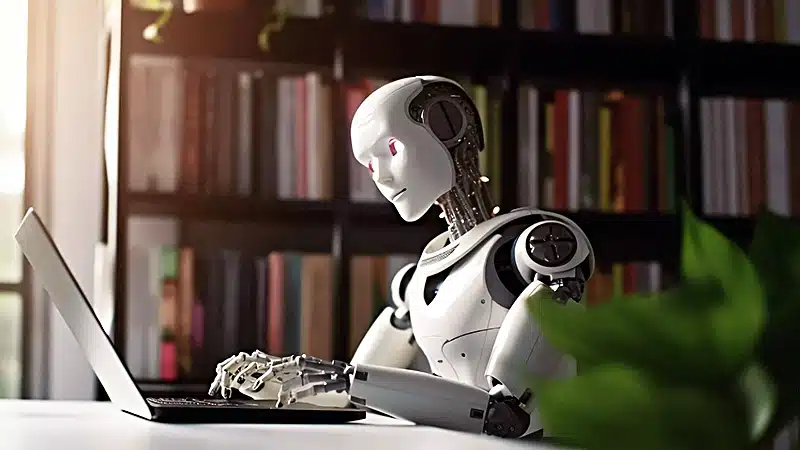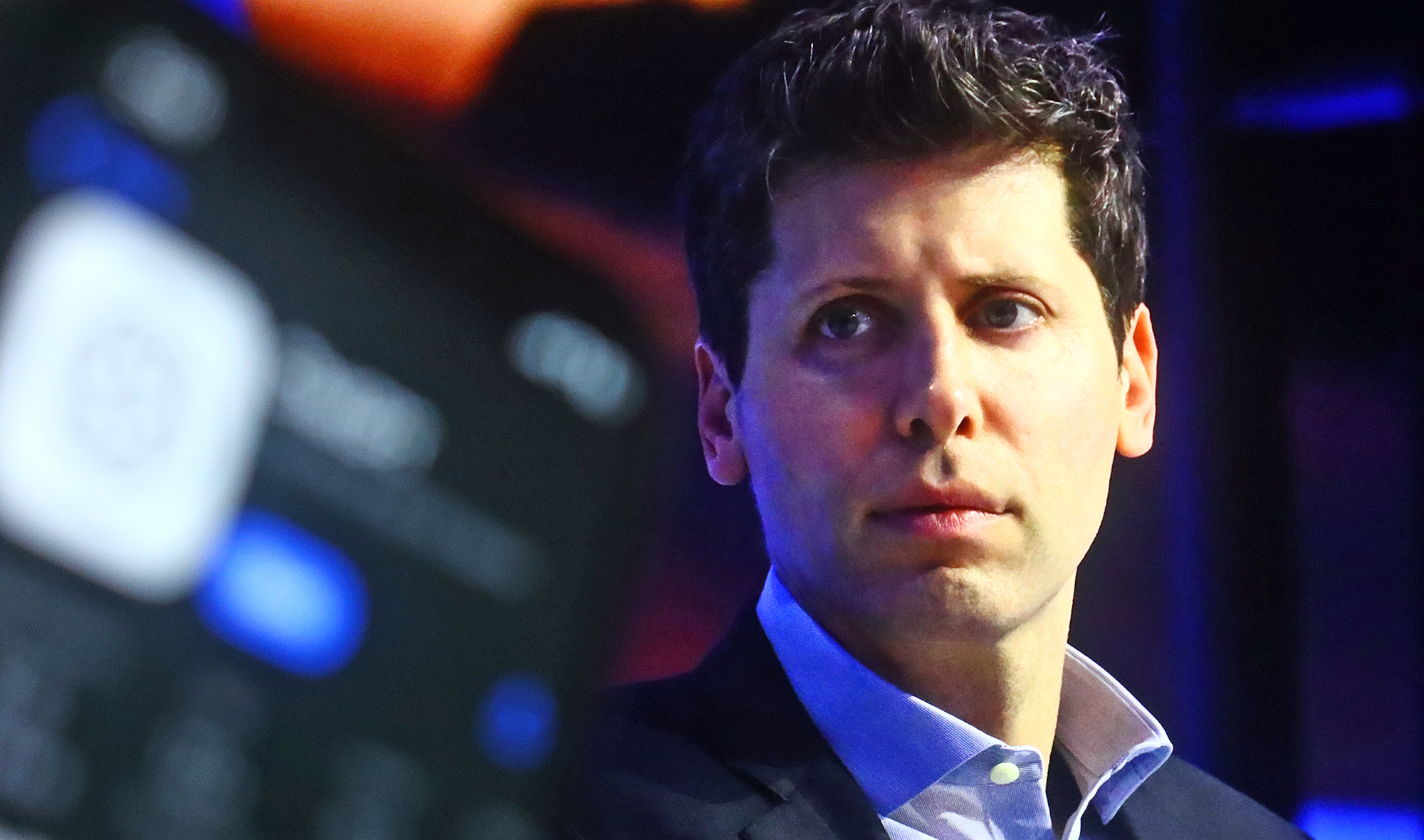Faust 2.0, or how OpenAI CEO Sam Altman is shaping – and fearing – the future.
ISLAMIC TIMES – Sam Altman is not easy to pin down. He comes across as modest in public, and it doesn’t immediately occur to you that you are listening to one of the most powerful figures in America.
He is not a classic entrepreneur, not a pure visionary, not a mere technocrat – he is all these things at once. As co-founder and CEO of OpenAI, he is at the centre of one of the most profound technological upheavals of our time. He is one of the architects of the artificial intelligence that is increasingly shaping not only our thoughts but also our actions.
Sam Altman – one of the architects of AI
In many ways, Altman is reminiscent of a character from another era: Goethe’s Faust. The scientist was driven by a thirst for knowledge, by a restlessness to know more, to be able to do more, to create more. But with his insatiable thirst for knowledge came responsibility – and with responsibility came danger.
In Goethe’s drama, it is Mephisto who allies himself with Faust in a sinister pact. In this pact, Faust dictates the modern law of permanent revolution, which must never rest for a moment, never reach its goal, but is always ‘on the run,’ writes Michael Jaeger in his essay Global Player Faust.
Altman, a driven man, cannot stop researching, building and believing. Regardless of whether one believes in the blessings of modern technology or not, the figure of the pioneer is a fascinating part of modern drama.
There is no serious doubt that we are living amid a technological revolution. ‘In the past, we only asked our AI questions,’ explains Altman, ‘now we are entering a phase where these systems are starting to do things for us.’
His vision sounds fascinating: according to his prophecy, every idea that a human being has can be technologically implemented in the future. The speed at which technology is developing is breathtaking.

Foto: Firn, Adobe Stock
When a tool becomes an actor
It began with machine language understanding, and today an entire ecosystem of productive, automated, intelligent systems is unfolding: ChatGPT writes texts, designs marketing strategies, translates legal documents, develops software, and reshapes everyday life and work. The tool becomes an actor in the form of controllable agents – and the world begins to reorganise itself around these ideas.
As we know, the literary Faust was never satisfied with pure knowledge. He wanted to make an impact. Altman, who embodies this urge and at the same time runs a global company, plays a dual role. He is a researcher and creator, a discoverer and entrepreneur. Time and again, he is also accused of having political ambitions.
His belief in progress is based – if one is to believe his self-portrayal – on a moral core. The parallel to the Faust myth is obvious: the tragedy lies in the fact that he does not know whether what he creates will really lead to good.
Founded as an alternative
OpenAI was once founded as a non-profit organisation – a deliberately ethical alternative to the profit-driven tech giants. The concern: the superintelligence being tinkered with in the machine rooms of tech factories should not belong to an elite but should benefit all of humanity.
Altman was considered a morally motivated voice in a sector that was all too often driven by market logic. But with the rapid progress of AI – and in the face of competition from China – the course changed.
The development of large language models requires billions in investment, immense computing power and global engineering. To finance this, OpenAI opened itself up to capital in 2019. The result was a close partnership with Microsoft and integration into the world of capital interests.

Foto: Drew Ditty Graham, Unsplash
Global race
A global race between language models for the most effective applications has long been underway. Critics accuse Altman of betraying his ideals. But perhaps it was less a betrayal than a Faustian pact with reality: if you really want to shape the world, you need power – and power rarely comes from pure idealism.
As we know, Faust also had to leave the seclusion of his study to make his mark on the world, with all the ambivalence that entails.
What sets Altman apart is that he does not simply ignore the dark side of his actions. Or is it just a clever strategy to take the wind out of the sails of his critics from the outset? At a public event held by the US Federal Reserve in July, he was asked what kept him awake at night. His answer was remarkable:
1. He fears that a ‘bad guy’ could take over AI to develop weapons or engage in large-scale manipulation.
2. He is concerned about the mental health of users when emotional attachments to AI systems develop that replace real human relationships.
3. He sees a risk that politicians will one day have to follow a superintelligence because they consider its judgement to be superior – thereby relinquishing their democratic responsibility.
These assessments show that the OpenAI CEO is not a naive believer in a techno-utopian world. He considers the entire spectrum of possibilities – spreading both the beautiful and the terrifying visions. He is both a visionary and a sceptic.
This is precisely what makes him a modern Faust figure: he dares to take a step into the unknown, seemingly not out of recklessness, but because he hopes that progress could be better than stagnation.
He also invests in visionary future models and founds start-ups working on nuclear fusion and biotechnology.

Photo: Evelyn Fey Bandaro, World Food Programme
Altman on social justice
In addition to technical development and entrepreneurial scaling, Altman likes to talk about social justice. He officially advocates data protection and the regulation of AI systems, and he encourages his own development team to think about the legal basis for the privacy of its users.
He publicly reflects on forms of democratic control and on the question of how the wealth generated by AI should one day be distributed, at least in part. He brings user participation into play and advocates an unconditional basic income so that productivity gains benefit not only investors but everyone.
Altman sees the coming power constellation, an alliance of social media, artificial intelligence and capital interests – and is trying to influence the dynamics from within.
This, too, is a way of resisting the temptations of this new world: not through moral purity, but through self-reflection in the face of one’s own power. However, a fundamental question remains, one that scientists such as Stewart Russell formulated years ago: Is AI a potentially ‘civilisation-ending technology’?
The criticism of Altman is harsh – and necessary. Some accuse him of megalomania, others of naivety, and still others of technological irresponsibility. Rumours about his private life are circulating. Some even see him as a new Oppenheimer: someone who knows he is unleashing a dangerous force – and does it anyway.
What is interesting here is the shift in roles: in Goethe’s work, Mephisto is the negative whisperer who wants to use his powers to force Faust to pause. Today, it is the critics who take on this role: they warn, admonish and deny. ‘You are the spirit that always denies’ – not out of a desire to destroy, but out of justified concern. Their questions are essential: Where are the limits of technology? Who gets to set them? And what if no one can control it anymore?
Sam Altman is not at the end of a development, but right in the middle of it. Like Faust, he seems restless, visionary, threatening and idealistic at the same time. He sees what is possible – and what threatens us. And yet he carries on. Not out of hubris, but out of hope for what he believes is a better world.
The crucial question is not whether Altman fails or triumphs. The challenge is whether we – as a society – preserve our ability to think, shape and decide for ourselves. In the mix of profit interests, power and technological dynamics, the need for control is obvious.
A book and a man of contradictions
Keach Hagey’s biography of him has just been published. The book reveals the contradictions, challenges and fascination in the life of one of America’s most powerful men. It not only recounts Altman’s role but also presents the history of the networking of the most successful protagonists of the American tech network.
In the USA, a power ring – beyond state or social control – shapes the decisive questions of human development. The author introduces the reader to the mindset of the scene, revealing the motivations and – sometimes disturbing – dreams and philosophical concepts of its movers and shakers.
The journalist reminds us that, in this context, it sounds almost romantic that behind every great invention there were people at the beginning. Ideas do not arise in a vacuum, but usually in the form of colourful personalities. Altman is not an abstract representative of the industry:
He is first and foremost a person full of contradictions – with a CV, an origin and an attitude. The technology he helps to shape is also a reflection of his biography.
But this is precisely where one of the final questions arises: Is this era of pioneers coming to an end? Will there eventually be no more ‘inventors’ because AI itself will begin to develop humanity’s ideas further – faster, deeper, more independently of their origins? Will biographies like Altman’s become footnotes in the future because the main characters of technological civilisation are no longer individuals – but a system?
If that were the case, Altman might indeed be the final Faust figure. Whether we like him or not, he is still a human being who asks questions before machines start asking them themselves. And perhaps he is also the last one who doubts.












